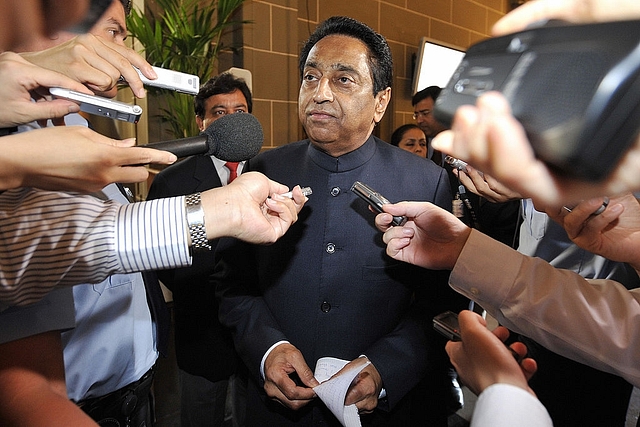
Congress Gives Kamal Lifeline To Badals In The Battle For Survival
Badals are fighting for their survival in Punjab and to expect that they would stick to their clean chit business is politically naive
In politics there are no permanent friends and foes. This adage is as old as human civilisation. To forget this comes with heavy consequences as Congress leaders Amarinder Singh and Kamal Nath discovered it in poll-bound Punjab.
Kamal Nath was forced to quit this week as party’s Punjab election in-charge due to allegations of his links to 1984 riots that shook India and took lives of thousands of Sikhs. His appointment itself came as a surprise because his name has been tossed around whenever the Sikh riots issue has cropped up in the context of the Congress party.
Congress made a series of mistakes in Kamal Nath’s appointment and lost initiative to seize the state that is facing anti-incumbency and disturbing social problems.
In an interview to The Indian Express, Punjab Congress chief Amarinder Singh talks like a political novice. He says that “It is unfair on the part of Akalis and AAP to rake up a controversy after 32 years of an event. Chief Minister Parkash Singh Badal had got his hotels (in Gurgaon) approved by him when he was the union (urban development) minister. Then, on a visit to US, Badal made it categorically clear that Nath was not involved.” Badals are fighting for their survival in Punjab and to expect that they would stick to their clean chit business is politically naive.
After Kamal Nath’s resignation, Parkash Singh Badal said: “Kamal Nath was reluctant to accept this post because of his guilty conscience in massacre of thousands of innocent Sikhs.”
Badal said Sikhs would never forgive him and other Congress leaders who had “planned and executed these heinous killings”.
This makes it clear that Badals (CM Prakash Singh Badal and Deputy CM Sukhbir Badal) have found a perfect weapon to target the Congress party. Kamal Nath is an important member of Congress and close to Gandhi family. A blot on Kamal Nath will erode the credibility of Congress and its leaders in the election season.
Amarinder is also guilty of assuming that the Sikhs or their leaders would have forgiven or forgotten Kamal Nath. Amarinder was consulted before Kamal Nath’s appointment and as a grassroots politician he should have been shrewd enough to realise that certain issues, especially the riots of 1984, could become weapons of politics.
He does admit in the interview that “… in Punjab, the 1984 riots is an emotive issue. We have observed that even if an accused is exonerated, he does not get clean chit from people of Punjab. For 22 years after the riots, his name cropped up. Technically speaking, they raise the 1984 (anti-Sikh riots) only during the election year.”
Amarinder is a local leader and he can afford an occasional error of judgement. But the national leaders in the Congress party, who took the decision to appoint Kamal Nath, may pay a heavy price of losing Punjab election itself.